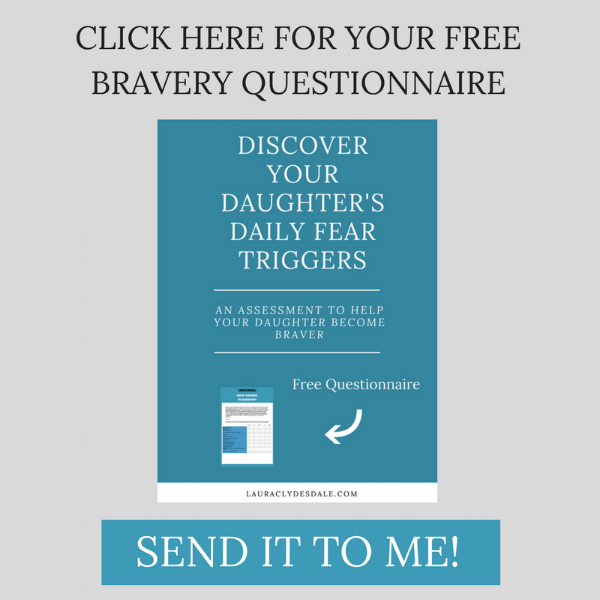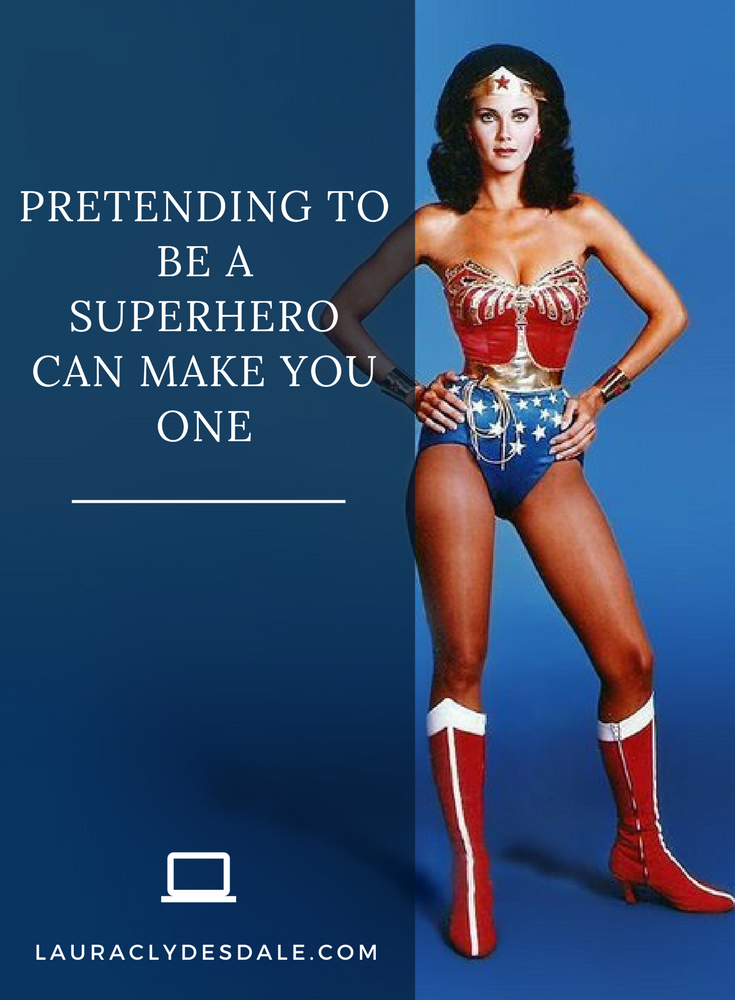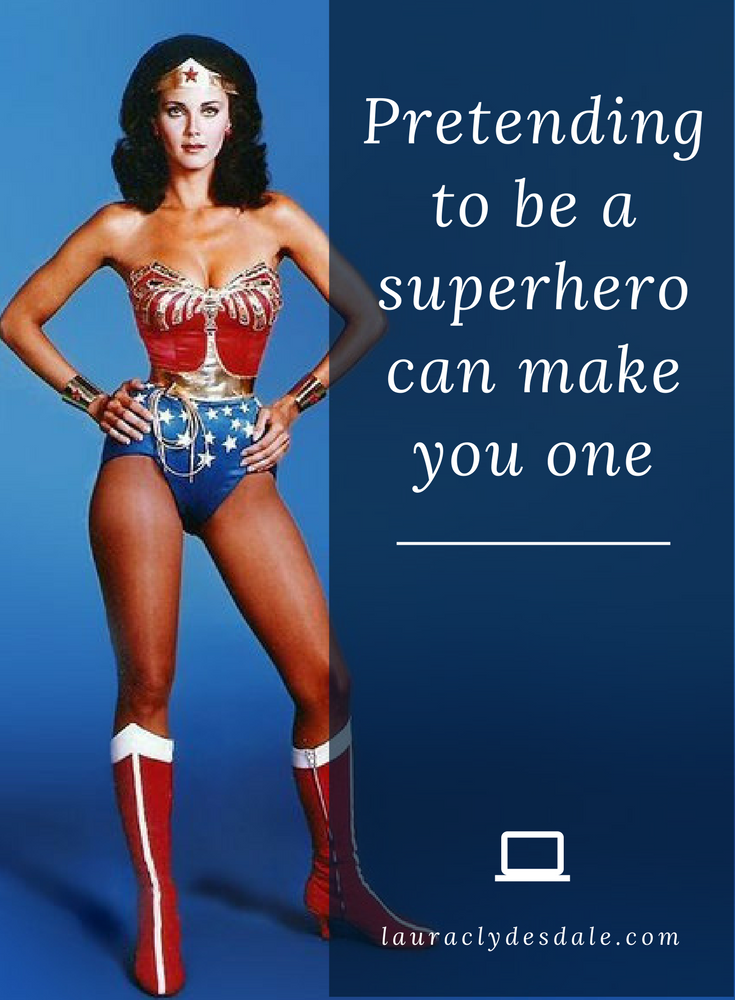“There’s absolutely nothing wrong with you,” the endocrinologist said warmly looking at my daughter who gave me a huge smile of relief.
My daughter had bungee-jumped off the growth chart. She was on the furthest tip of the bell curve’s tail. She was a statistical outlier. Why were we checking? Because she has a 6’ 5” father.
He went on, “However, you are almost three years behind your peers when it comes to development.”
We were all relieved. She was just a severely late bloomer.
I was thrilled she would mature slower and gentler into womanhood. My husband was elated to have his “little girl” around a bit longer.
She was thrilled there would be no more blood tests.
“What this means, however,” the doctor continued, “is that you’ll need to set expectations. You will most likely be the shortest and youngest, developmentally, among your friends for several years until you catch up. You are likely to feel out of place sometimes, and it’s crucial you don’t let that get in the way.”
This thoughtful doctor's advice suddenly triggered an old memory of my well-worn copy of "Are You There God, It's Me Margaret," as I anxiously anticipated my period. I believed I was the only tween girl in America without it.
What the doctor was getting at was, one day soon, there was a good chance she might feel like a girl-group mascot instead of simply one-of-the-girls.
Taking the doctor's advice to heart, I did some research and found some intriguing strategies on how to exude more presence and gain confidence when needed and I shared them with my daughter. However, she was “totally” sure she wouldn’t need any of these. This would "absolutely not" get in the way of her and her friends.
…and then it did.
Two months later, on the long drive to her summer camp, she turned to me in the car and told me she was nervous. This year she would attend the 13-years-and-older girls’ camp for the first time.
I was surprised. Many of her friends were matriculating to this new camp with her.
“What exactly are you nervous about? Maybe we can talk it through,” I offered, feeling confident it was simply a case of butterflies.
“Mom, I’m going to be the smallest girl at camp.”
And there it was.
She wouldn’t just be the smallest. She was envisioning an entire summer in a swimsuit. It would be hard not to notice differences.
“When we get to the hotel, let’s try the Wonder Woman,” I said.
She sighed, “OK. I’ll give it a try.”
Yes. The Wonder Woman. Amy Cuddy’s TED talk is one of the most enjoyed of all time, with over 35 million views. Her research and book, Presence, suggests that if you stand in power poses (one of which looks like Wonder Woman’s stance) for just two minutes a day, you will not only change other people’s perceptions of you but also your body chemistry allowing you to exude more confidence and presence.
It sounds crazy, but Cuddy can prove it.
So what is presence? Cuddy’s description is passionate, confident, authentic, comfortable, captivating, enthusiastic and trustworthy. It does not equal size, and it doesn't equal extraversion or gregariousness. Quiet individuals can exude presence as well.
The science is that powerful people with presence tend to be more assertive, more confident, take more risks and are even more optimistic. Physiologically there are also differences between the powerful and powerless in two key hormones: testosterone, the dominance hormone, and cortisol which is the stress hormone. Powerful people have high testosterone and low cortisol. Powerless people have the opposite.
Here’s where it gets interesting. When Cuddy’s subjects adopted power poses for only two minutes each day, they shockingly increased their testosterone by 20% and lowered their cortisol by 25%. Low power posers' testosterone fell by 10%, and their cortisol rose 15%. High-power posers also started to exhibit powerful-people traits like risk-taking and optimism afterward when they were offered an opportunity to gamble. 86% of the high power posers gambled vs. 60% of the low-power posers.
Apparently, instead of faking it until you make it, you can fake it until you become it. Forget mind over matter; we’re talking matter over mind here.
High power poses involve opening up your body and taking up more space. Some examples of power poses are:
- Place your hands on your hips with your elbows out and chest puffed up (The Wonder Woman).
- Stand with your hands resting on a table, and lean over the table.
- Lift your arms over your head and spread them into a V shape.
The Wonder Woman wouldn’t help my daughter grow taller or start developing. However, we crossed fingers for a boost in presence to increase her confidence and encourage others to look past her physical “limitations." If she exuded more presence she would be less likely to be dismissed. People like to be around individuals with presence.
People from all over the world have written to Ms. Cuddy thanking her for helping them attain authenticity. It hasn’t mattered if they were students, elite athletes, or even victims of bullying and sexual assault, they all claimed that this daily practice has helped to change their lives. Even visualizing the pose, in the case of a quadriplegic, helped tremendously.
Cuddy argues that the authentic self is an experience - “a state, not a trait.” She says, “Presence stems from believing our own stories. When we don’t believe our stories, we are inauthentic—we are deceiving, in a way, both ourselves and others. And this self-deception is, it turns out, observable to others as our confidence wanes and our verbal and nonverbal behaviors become dissonant. It’s not that people are thinking, “He’s a liar.” It’s that people are thinking, “Something feels off. I can’t completely invest my confidence in this person.”
Back in the hotel room, my daughter stood for several minutes, giggling in the Wonder Woman pose and feeling ridiculous. She tried it again that evening and again, one last time, in the morning. She eventually got over the weirdness, and she told me it oddly made her feel like doing something physically active. Perhaps a boost in testosterone?
Camp drop-off was exactly as expected with lots of hugs and laughter. As I attempted to say goodbye to my daughter in the midst of the group chaos, one of her friends pointed to my daughter’s size-two shoes and exclaimed, “My goodness, look at how small your feet are!”
Without missing a beat, my daughter replied, “Yup, everything about me is small…except for my personality.”
A truly authentic answer.
-Laura






